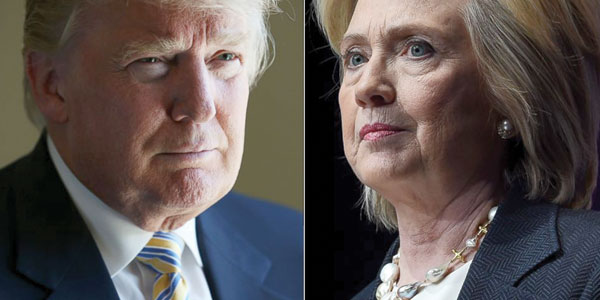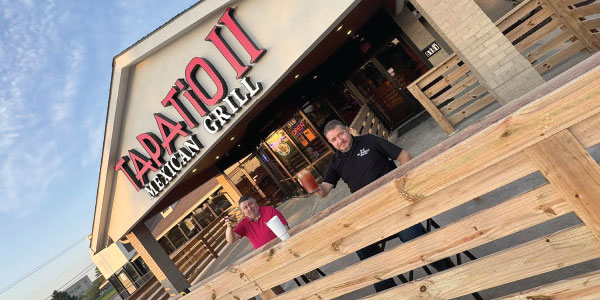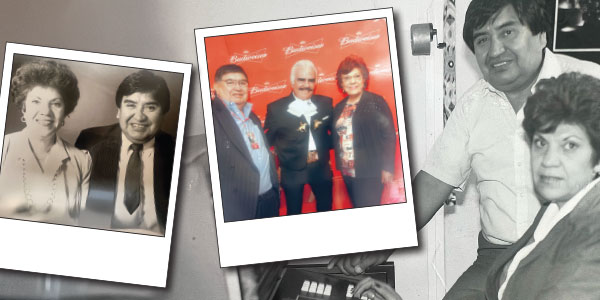
Son, digamos, las fiestas a las que todos queremos ir. Pero el problema es que los tipos de la entrada tienen fama de duros y sólo dejan pasar a gente que ya conocen. Las fiestas a las que me refiero son los tres debates presidenciales en Estados Unidos, el primero de los cuales ocurrirá el lunes 26 de septiembre.
Los tipos de la entrada son de la Comisión de Debates Presidenciales, que desde 1987 se han encargado de organizar, con bastante éxito y autonomía, la logística para enfrentar a los aspirantes a la Casa Blanca. Esos debates suelen ser decisivos y separan a los improvisados de quienes tienen el carácter y preparación para ocupar el trabajo más difícil del mundo.
Sin embargo, la preocupación es que, por tradición e inercia, dicha comisión defienda los intereses de los partidos Demócrata y Republicano. Así, otros partidos o un candidato independiente tienen un obstáculo casi infranqueable para participar en los debates: el necesario 15% de apoyo entre los votantes en un promedio de cinco encuestas.
En una elección como la del 8 de noviembre, con dos de los candidatos más impopulares en la historia moderna de Estados Unidos, sería recomendable tener más opciones. Donald Trump, el candidato republicano, tiene 63% de opinión negativa, y Hillary Clinton 55%, según una encuesta de Gallup. Las opciones existen, pero el problema es que pocos saben quiénes son.
“El 70% de los estadounidenses no saben quiénes somos”, me dijo en un foro el candidato presidencial del Partido Libertario, Gary Johnson. “En los últimos días hemos recaudado varios millones de dólares que nos servirán para que la gente reconozca nuestros nombres”. Por ahora, los libertarios apenas alcanzan 10% en algunas encuestas.
Jill Stein, la candidata presidencial del Partido Verde, está en una situación aún más difícil. Las encuestas le dan 4% o 5%. Sin embargo, “Ahí estaré”, le dijo al diario USA Today. Ella aseguró que está dispuesta a ser arrestada si no la dejan participar. “Me sentiría terrible si gana Donald, y me sentiría igual de mal si Hillary es elegida”, agregó.
Y el candidato independiente, Evan McMullin, quien trabajó en la CIA, me dijo en una entrevista que Trump es un hombre muy “frágil” y que podría retirarse antes de la elección. Su plan es evitar que Hillary o Trump ganen los 270 votos electorales y que el Congreso escoja al nuevo presidente (algo que no ha ocurrido desde 1824).
Stein, McMullin y Johnson no han sido invitados a la fiesta. Tampoco los periodistas latinos.
Los hispanos son el grupo de electores de más rápido crecimiento en Estados Unidos. Este año habrá 27 millones de latinos elegibles para votar. El voto hispano es fundamental en estados claves como Colorado, Nevada y Florida. No exagero al decir que sin los latinos nadie puede llegar a la Casa Blanca. Pero nunca han querido invitar a un periodista latino a moderar uno de los debates presidenciales.
¿Por qué? No lo sé.
Hay una larga lista de periodistas latinos sumamente capaces que podrían hacer un trabajo extraordinario en esos debates, desde María Elena Salinas de Univisión y José Díaz-Balart de Telemundo hasta los periodistas de la cadena ABC, Cecilia Vega y Tom Llamas, y María Hinojosa de NPR.
Pero mi sospecha es que ambos candidatos tienen miedo de las preguntas que les harían. Sí, es verdad, estos reporteros — y muchos más — forman parte de un grupo del que no se habla lo suficiente, y sus preguntas podrían resultar poco convencionales.
Pero ya es hora. El país está cambiando. En el 2044, según la Oficina del Censo, los blancos se convertirán en una minoría en Estados Unidos, y los debates presidenciales deben reflejar la creciente diversidad del país.
Los debates presidenciales han sido una especie de fiesta entre conocidos con un buen equipo de seguridad en la entrada. Los nuevos chicos del barrio no son siempre bienvenidos. Sin embargo, los debates no deben manejarse con las mismas reglas de un club privado. Esta nación también es de nosotros y debe incluir todos los colores y acentos.
Hasta el momento, ni los libertarios, ni los verdes, ni los periodistas latinos han sido invitados. Pero este es el momento para que la Comisión de Debates Presidenciales revise sus listas y haga nuevas invitaciones.
¡Abran los debates! Les aseguro que, si lo hacen, su fiesta servirá para renovar esta democracia en un momento de crisis (además que será mucho más divertida). No queremos ser los aguafiestas. Pero si no nos invitan, pueden esperar muchos gritos en la puerta de entrada.
(Jorge Ramos, periodista ganador del Emmy, es el principal director de noticias de Univision Network. Ramos, nacido en México, es autor de nueve libros de grandes ventas, el más reciente de los cuales es “A Country for All: An Immigrant Manifesto”.)
(¿Tiene algún comentario o pregunta para Jorge Ramos? Envíe un correo electrónico a Jorge.Ramos@nytimes.com. Por favor incluya su nombre, ciudad y país.)
Open the Debates!
By Jorge Ramos
They are the kind of party we all want to attend, but the bouncers will only let in the people they know. I’m talking about this fall’s three scheduled presidential debates. The bouncers are from the nonpartisan Commission on Presidential Debates, which since 1987 has rather successfully managed the logistics of these forums. The first debate of this new round is Monday, Sept. 26.
The debates, which are generally moderated by one journalist and viewed by tens of millions of Americans, tend to be decisive. They help voters determine which candidate is best prepared to take on the toughest job in the world.
However, because of tradition and inertia, the debate commission tends to defend the interests of the Republican and Democratic parties — effectively barring other candidates by raising an almost insurmountable hurdle to qualify.
The commission requires non-major-party candidates to show 15% of voter support across an average of five national polls. The upcoming election features two of the most unpopular candidates in modern American history. Wouldn’t it be advisable for the commission to include new faces?
According to the latest Gallup survey, a majority of voters view both Democrat Hillary Clinton and Republican Donald Trump unfavorably (by 63% and 55%, respectively). Are other candidates running? Of course, but they don’t have a high profile.
“Seventy percent of Americans don’t know who we are,” Gary Johnson, the Libertarian Party candidate, told me in a recent interview. “Over the last couple of days we’ve raised several million dollars, which will go a long way toward name familiarity.” Currently Johnson has about 10% of voter support in some polls.
Jill Stein, the Green Party candidate, is getting just 4-5% support, but she has vowed to show up at the debates anyway. “I will be there,” she told USA Today recently. She has also said that she’s willing to be arrested if she’s not allowed to take part in the debates. “I will feel terrible if Donald gets elected, and I’ll also feel terrible if Hillary gets elected,” Stein said.
In a recent interview, independent candidate Evan McMullin, a former operations officer at the CIA, told me that he regards Trump as a “fragile” candidate who might even withdraw before the Nov. 8 election. If not, McMullin hopes that his candidacy prevents Clinton or Trump from winning the necessary 270 electoral votes so that Congress will be forced to choose the new president (something that hasn’t happened in the U.S. since 1824).
But while the debate commission has yet to invite outsiders like Johnson. McMullin and Stein to its party, it has also neglected to invite Hispanic journalists to be moderators.
Hispanics are the fastest-growing electoral group in the United States — a bloc of about 27 million eligible voters. Their support is crucial in swing states like Colorado, Nevada and Florida, so I’m not exaggerating when I say that no candidate can take the White House without Hispanics’ support. Yet a Hispanic journalist has never moderated one of the presidential debates. Why?
There are many highly competent Hispanic journalists who could do an extraordinary job: Maria Elena Salinas from Univision, for instance, or Jose Diaz-Balart from Telemundo, journalists Cecilia Vega and Tom Llamas from ABC, or Maria Hinojosa from NPR.
I get the sense that both major candidates are afraid of just what they might be asked. These Hispanic journalists, and many more, are part of a community seldom discussed beyond the single focus on immigration. Their questions could prove quite unconventional.
But it’s high time that a Latino journalist is invited to moderate. The nation is changing: By 2044, white residents will be a minority in the United States, according to census data. The presidential debates shouldn’t be managed like private clubs. They should reflect the nation’s growing diversity. This is our nation — as many ethnicities, accents and positions as possible should be represented.
So my message to the commission is this: Open the debates! Rest assured that if the debate party is more inclusive, many Americans will find their faith in democracy renewed. If not, don’t be surprised to hear some loud screaming at the door.
(Jorge Ramos, an Emmy Award-winning journalist, is a news anchor on Univision and the host of “America With Jorge Ramos” on Fusion. Originally from Mexico and now based in Florida, Ramos is the author of several best-selling books. His latest is “Take a Stand: Lessons From Rebels.” Email him at jorge.ramos@nytimes.com.)










